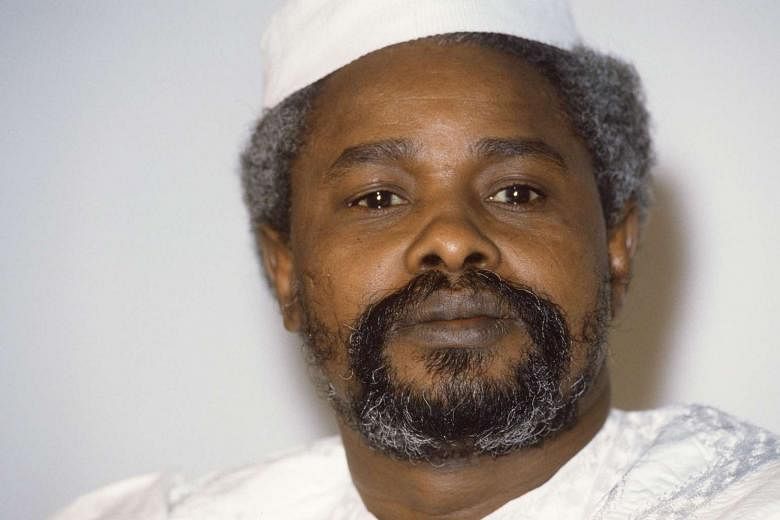DAKAR (AFP) - Prosecutors in Senegal spelled out Tuesday some of the cruel abuses meted out to detainees of Chadian ex-dictator Hissene Habre's regime, including a grim method of tying all four limbs behind their backs.
The 72-year-old's war crimes trial in Dakar heard how the punishment - known as the infamous "Arbatachar" torture method that causes agonising pain and paralysis - was a preferred technique of his feared secret police.
"Of all the players in the system of repression, Hissene Habre is the one who was most worthy of blame," said the bill of indictment - a document detailing the allegations against the despot - read out in court. "He would have been the brains, the chief organiser. He was also the facilitator. He had supreme control over the bodies involved in the policy of repression."
The lengthy document, running to more than 150 pages, detailed his alleged complicity in the abuses of the Documentation and Security Directorate (DDS), described as "the eyes and the ears of the president".
Torture of suspects under his regime included electric shocks, gas sprayed into eyes, spice rubbed into their private parts and waterboarding, the tribunal heard.
Habre - once backed by France and the United States as a bulwark against Libya's Moamer Kadhafi - is accused of war crimes, crimes against humanity and torture between 1982 and 1990.
An estimated 40,000 people were killed under his regime, and the Extraordinary African Chambers, whose authority Habre refuses to recognise, will rule on whether the dictator is personally responsible.
Once dubbed "Africa's Pinochet", Habre has been in custody in Senegal since his arrest in June 2013 at the home he shared in a plush neighbourhood of Dakar with his wife and children.
He can expect a sentence ranging from 30 years to life with hard labour if convicted by the chambers, a special court established by the African Union under an agreement with Senegal, led by a judge from Burkina Faso.
After sentencing, a second phase of the hearings would rule on civil compensation claims.
The court was told that Habre would get daily updates on the work of the DDS and insisted on knowing everything that went on there.
Arrest, detention and release orders all came from him, and he "personally intervened in the implementation of repression", according to the charge sheet read out by two court clerks.
One witness quoted in the indictment said he was "interrogated and slapped" by Habre in person.
"Among those arrested, many had their property confiscated or looted. The confiscation was done on the orders of higher authorities," the indictment said.
"The assets were handed over to the general management of the DDS. Salaries were blocked. Houses were allocated to military officers," said the document, quoting testimony from victims.
Delayed for years by Senegal, where Habre has lived since being ousted in 1990, the hearings will set a historic precedent as until now African leaders accused of atrocities have been tried in international courts.
They come at a time when relations between African Union members and the International Criminal Court (ICC) are at an all-time low, three months after Sudan's Omar al-Bashir avoided arrest on an international warrant while in South Africa.
The AU has accused the ICC of targeting only African leaders, noting that major powers such as Russia, China and the United States have refused to place themselves under The Hague-based court's jurisdiction.
Tuesday's proceedings were interrupted several times, including by a Chadian who was expelled after standing up to make a speech, before the court adjourned until Wednesday.

